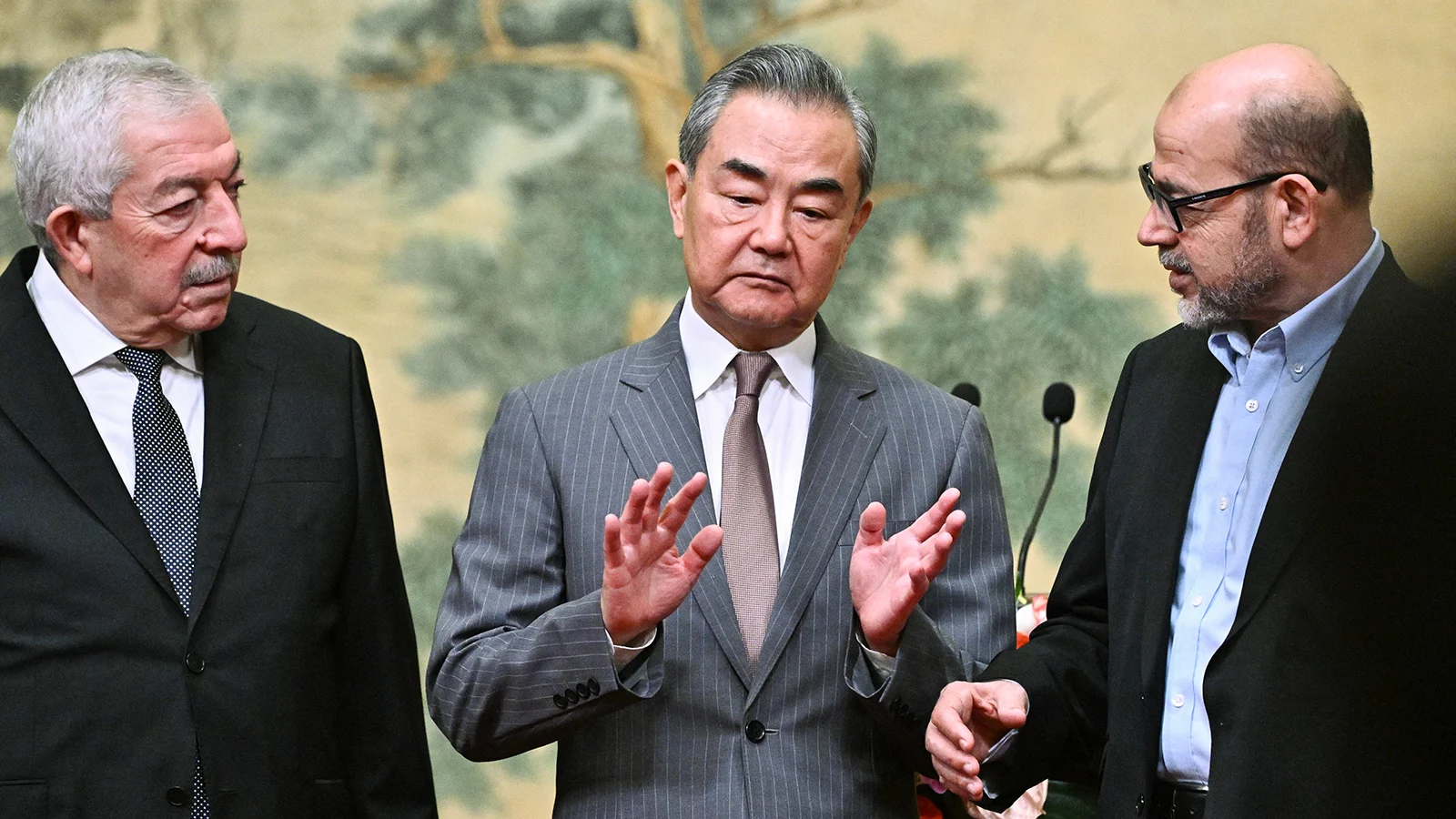In a landmark development, Palestinian factions, including the rival groups Hamas and Fatah, have signed an agreement in Beijing aimed at ending their long-standing division and strengthening Palestinian unity. This announcement follows reconciliation talks hosted by China, reflecting Beijing’s growing role as a peace broker in the Middle East.
Uniting for a Common Cause
The reconciliation agreement, signed by 14 Palestinian factions, is described by Chinese Foreign Minister Wang Yi as a dedication to “the great reconciliation and unity of all 14 factions.” He emphasized that the core outcome is the recognition of the Palestine Liberation Organization (PLO) as the sole legitimate representative of all Palestinian people. Mustafa Barghouti, president of the Palestinian National Initiative, echoed this sentiment, stating that “all the parties” agreed on joining the PLO.
A History of Division
Hamas and Fatah have a tumultuous history marked by failed attempts at unity. The Palestinian Authority (PA) held control over Gaza until Hamas took over in 2007, following a victory in the 2006 legislative elections. Despite a reconciliation agreement in Cairo in 2017, tensions persisted, leading to violence and political strife. However, the latest deal in Beijing aims to go “much further” than previous efforts, with specific steps towards forming a consensus government, as Barghouti highlighted.
The Role of China
China’s involvement in brokering this agreement underscores its increasing influence in the Middle East. Chinese leader Xi Jinping has been vocal in calling for international peace efforts and has positioned China as a critical mediator in regional conflicts. This agreement comes after earlier talks hosted by Beijing and follows China’s successful mediation between Saudi Arabia and Iran.
Skepticism and Optimism
While the agreement marks a significant step, skepticism remains about its long-term impact. Tahani Mustafa, senior Palestine analyst at the International Crisis Group, cautioned that “the major issues that have proven to be obstacles to reconciliation in the past were not addressed.” Hamas has consistently demanded fair representation within the PLO, a stance that Palestinian Authority President Mahmoud Abbas has previously resisted.
A Step Towards Peace
Despite the challenges, Hossam Badran of Hamas’ Political Bureau expressed optimism about the agreement, noting that it includes steps towards forming a consensus government to manage Palestinian affairs in Gaza and the West Bank. This initiative aims to facilitate a ceasefire and prepare for future elections, even amidst ongoing conflict.
China’s Vision for the Middle East
China’s efforts to mediate peace in the Middle East are part of its broader strategy to position itself as a geopolitical heavyweight. Jonathan Fulton of the Atlantic Council pointed out that China aims to present itself as a unifying force, contrasting with the perceived divisiveness of Western involvement in the region.
The U.S. Perspective
The U.S. State Department, however, has expressed reservations about the agreement, particularly regarding Hamas’ role in Gaza’s post-war governance. State Department spokesperson Matthew Miller emphasized that “there can’t be a role for a terrorist organization” in governing Gaza after the conflict, reflecting the U.S.’s stance on Hamas.
The reconciliation agreement between Hamas and Fatah brokered in Beijing, marks a hopeful yet cautious step towards Palestinian unity. While challenges remain, the involvement of China as a mediator brings a new dynamic to the peace efforts in the Middle East. As the situation evolves, the world watches closely to see if this historic agreement will pave the way for lasting peace and stability in the region.







